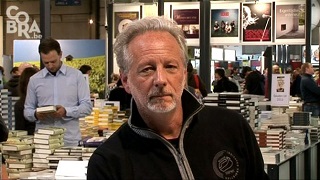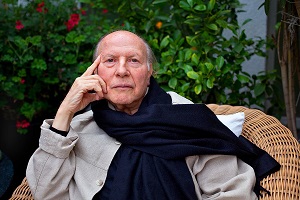De Vlaamse dichter, schrijver en essayist Stefan Hertmans werd geboren in Gent op 31 maart 1951. Zie ook alle tags voor Stefan Hertmans op dit blog.
De overtocht
Het zijn die ogen in de schaduw
die dood gelezen zijn.
Waarheid is een woord met wapens.
Het gaat om angst in de woestijn,
gevleugeld beest uit lang vervlogen eeuwen,
wreedheden flitsend op een zinkend scherm.
Je moet niet met je vinger wijzen,
het was haar moeder die het zei.
Ze stak hem in haar keel,
de boot schokte zich door een storm
die de wereld overspoelde.
Haar vonnis onverstaanbaar,
iets dat zich niet liet schrijven,
een vinger in een bloedend oog,
en naamloos door de jaren drijven.
Hoe een omelet te bakken zonder het ei te breken
Leg eerst de schalen in een geur –
Aarde en wind, dat wat je bij kinderen vindt
Het dood konijntje bij de achterdeur.
Sluit dan bokaaltjes af,
Adem niet langer
Wees je eigen ruime graf.
Wacht nog een dag of twee.
Je eieren broeden met je mee.
Open de ramen op de derde dag.
Lees psalmen; onthaal je
Weggelopen liefde op en
Zorgeloze lach.
Breek open, vingernagels,
Ruk de ongedachte
Dooier uit je dichtgeknepen palm.
Warm de aarde met je hand.
Wacht nu het bakken af,
en roer, roer, roer
Tot diep in je schaalomhulde nacht.

Stefan Hertmans (Gent, 31 maart 1951)

